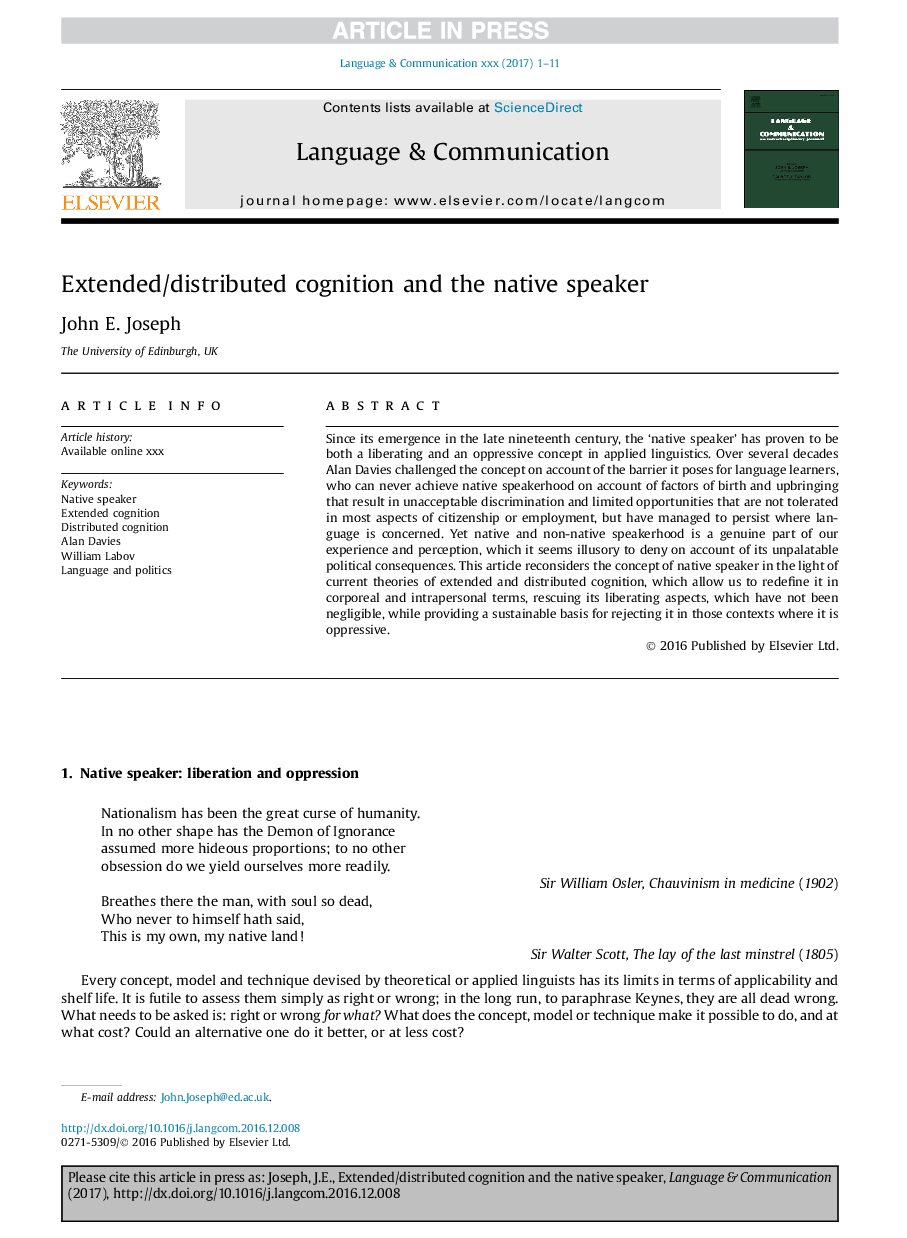| Article ID | Journal | Published Year | Pages | File Type |
|---|---|---|---|---|
| 7298300 | Language & Communication | 2017 | 11 Pages |
Abstract
Since its emergence in the late nineteenth century, the 'native speaker' has proven to be both a liberating and an oppressive concept in applied linguistics. Over several decades Alan Davies challenged the concept on account of the barrier it poses for language learners, who can never achieve native speakerhood on account of factors of birth and upbringing that result in unacceptable discrimination and limited opportunities that are not tolerated in most aspects of citizenship or employment, but have managed to persist where language is concerned. Yet native and non-native speakerhood is a genuine part of our experience and perception, which it seems illusory to deny on account of its unpalatable political consequences. This article reconsiders the concept of native speaker in the light of current theories of extended and distributed cognition, which allow us to redefine it in corporeal and intrapersonal terms, rescuing its liberating aspects, which have not been negligible, while providing a sustainable basis for rejecting it in those contexts where it is oppressive.
Related Topics
Social Sciences and Humanities
Arts and Humanities
Language and Linguistics
Authors
John E. Joseph,
